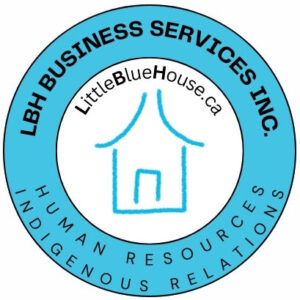With the big social movements (like #BLM, #metoo, and #landback), the COVID-19 pandemic, and the great resignation the nature of work and work environments are changing. Understanding “The Path of Feedback” in my article “What is the Role of Human Resources?” can also help you navigate these issues at the organizational level.
A good work environment is one that subjectively and positively answers three main questions about wage, support, and how you feel. Are you being paid fairly, are you getting the proper support, and do you feel good about it?
The rest of this article will explore these three questions.
Are you being paid fairly for your time?
Understanding if you are being paid fairly is based on minimum wage laws, the living wage in your area, your industry standards, cost of living or inflation, your experience, and your performance. Some organizations and industries still have old biases and discriminations preventing fair wages for women, people of colour, and the 2SLGBTQIA+ community. So, you need this info to break through the glass ceilings.
Minimum Wage
Minimum wage laws are vastly outdated in most areas in North America. An organization that is paying minimum wage is not an organization you want to work for. The minimum wage is below the poverty line in most areas and employees then need multiple jobs just to live. Employees that must work multiple jobs are distracted employees, so an organization’s productivity and work environment go down.
Living Wage
The living wage varies from area to area but allows you to know how much money you need to make to just survive. No matter who you are you should never work for less than the local living wage calculation. If you’re in Alberta, Canada, follow this link to find your living wage . If you’re in other places just Google “Living Wage” and you should be able to find some info for your local area.
. If you’re in other places just Google “Living Wage” and you should be able to find some info for your local area.
Industry Standards
Different industries may pay differently for the same position. Research your industry to find out what everyone else is being paid. Admin staff for a government agency may be paid less than admin staff at a large multi-national construction company. So, demanding the same wage may not be viable. Your organization may be a good organization if they always pay over industry standards. This will always attract the best in the industry!
Cost-of-Living
No one likes staying in a job where you don’t feel appreciated and not shown that with pay increases. It is even worse if you don’t get at least a yearly cost-of-living increase to account for market inflation of the cost of goods. A good organization will always give you a cost-of-living wage increase even if you didn’t earn a merit wage increase this year.
Experience
Your experience is important when negotiating your starting wage and your performance helps you gain merit wage increases after you have the job. Unfortunately, men (white men) negotiate harder on starting wages, so this leaves everyone else making less. An organization with a pay grid helps a bit but your experience is still very important. If you have less than five years’ experience in a particular industry expect that you will be making less. When you have five or more years’ experience you should certainly negotiate harder for a better starting wage.
Performance
After joining an organization your performance is important to getting more merit wage increases. I’m not advocating for you to work all hours and take no days off. I’m saying you need to identify the important tasks and do them better or faster than most people. Consistently being the top performer is good but make sure you remind your supervisor of this and always ask them how you can improve. A good organization will recognize the top performers and support everyone regularly.
Are you getting the proper support from management?
Top performers are top performers because they have previous experience or are getting exceptional support at their current job. Previous experience and current support can be narrowed down to training. A good organization is always training employees and the first step of any disciplinary process is training, not punishment. To learn more about the New Disciplinary Process read my other blog.
The best organization also trains its employees for the job they could have. People retire and organizations grow, the best way to replace and expand is from within. Internal promotions happen all the time in good organizations.
Other types of support may be things like benefits, sick days, more vacation time, work-from-home options, team building, proper tools and equipment, enough employees, and a proper wage which we already spoke about above.
Do you feel good about working there?
A good organization has employees that are excited to come to work! Do not confuse excitement for the work with being excited about the organization you work for. If you spend five years at a job and you find yourself always wanting to call in sick, this is a good indicator that you don’t feel good about working there.
Another indicator that you don’t’ like your job is if you mock and disrespect your supervisor after they leave you. If you can’t respect your supervisor, then you may not feel good about working there.
A good organization has people working there that are you like. If you’ve made personal friends from work associates, then you may be working for a good organization. At the very least you may have found a friend that could help you introduce changes in the workplace.
In the meantime, how about trying a funny swear word adult colouring book to relieve stress and relax from Amazon.
from Amazon.
Moving Forward
If you have decided to stay with your current employer, then maybe you just need some top ideas on how to create a good work environment. I encourage you to get active with your team and organization to help implement new and creative changes!
If you have decided to leave your current employer, then make sure you have a job lined up before you leave. Update your resume and then write a new cover letter for each job you apply for. If you need some resume tips, check out my Gig on Fiverr .
.

